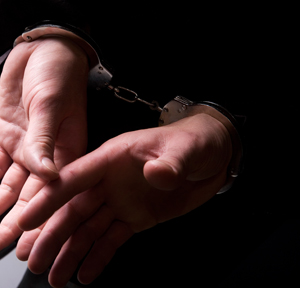Legal
US Asks Switzerland To Extradite FIFA Officials Arrested Over Bribery, Corruption Charges

The US authorities have taken the next step in the saga around claims around bribery and corruption around FIFA.
The US has asked Switzerland to extradite the seven FIFA officials arrested in Zurich in May over corruption and bribery charges in what has been one of the largest scandals in sporting history and which has also seen banks asked to check potential suspicious transactions.
The Swiss Federal Office of Justice issued a statement today saying US authorities had made the request.
The seven FIFA officials were arrested and detained in the Alpine state pending extradition on 27 May in Zurich, based on a request from the US. The US embassy in Bern submitted the formal requests within the 40 day deadline laid down in the bilateral extradition treaty.
The allegations surrounding the organisation that oversees the World Cup tournament have cast a shadow over the Russia 2018 and Qatar 2022 tournaments, with claims that FIFA officials received bribes to award these tournaments – and possibly tournaments in the past. Sepp Blatter has already announced he is resigning from a post he has held amid rising controversy for 17 years.
The scandal is of interest to the wealth management because it is an example of how Switzerland and the US have so far worked relatively harmoniously over this issue – contrasting with sometimes strained relations over Swiss bank secrecy; and it also raises questions about possible laundering of illicit payments and what controls were in place. (To view a story about concerns over money laundering, click here.) Interestingly, while the US is not yet thought of as a leading soccer powerhouse, its pursuit of the FIFA officials arguably contrasts with a more low-key approach taken by some European nations.
The seven persons whom the US wishes to extradite are:
-- Eugenio Figueredo, FIFA vice president and executive
committee member, CONMEBOL president and Urugauayan soccer
federation president. Citizen of Uruguay;
-- Eduardo Li, FIFA executive committee member-elect,
CONCACAF executive committee member and Costa Rican soccer
federation (FEDEFUT) president. Citizen of Costa Rica;
-- José Maria Marin, FIFA organizing committee for the
Olympic football tounaments member and Brazilien soccer
federation (CBF) president. Citizen of Brazil;
-- Julio Rocha, FIFA development officer, Central American
Football Union (UNCAF) president and Nicaraguan soccer federation
(FENIFUT) president. Citizen of Nicaragua;
-- Costas Takkas, CONCACAF attaché to the president and CIFA
general secretary. UK citizen;
-- Jeffrey Webb, FIFA vice president and executive committee
member, CONCACAF president, CFU executive committee member and
Cayman Islands Football Association (CIFA) president. UK
citizen;
-- Rafael Esquivel, President of the Venezuelan Football
Federation and Member of the Executive Committee of the South
American Football Confederation (CONMEBOL), Venezuelan citizen.
The extradition requests are based on the arrest warrants issued on 20 May 2015 by the United States Attorney’s Office for the Eastern District of New York. The high-ranking FIFA officers are investigated on suspicion of taking bribes worth over $100 million.
Those suspected of paying the bribes, primarily representatives
of sports media and sports promotion firms, are believed to have
received media, marketing and sponsorship rights for soccer
tournaments in the US and Latin America. The crimes are thought
to have been agreed and prepared in the US and payments were
allegedly routed through US banks, according to the statement by
the Swiss FOJ.
Acting for the FOJ, the Zurich Cantonal Police will give the
seven FIFA officials a hearing on the extradition requests, the
statement continued. A period of 14 days will be granted by the
FOJ to the arrested officials, or their lawyers, in which they
can respond to the request. This deadline could be extended
depending on whether sufficient grounds exist.
Taking into account the request, the hearing and the responses
from the persons concerned, the FOJ will rule on the extradition
within a few weeks. The Swiss FOJ's extradition ruling may be
challenged before the Federal Criminal Court and before the Swiss
Federal Supreme Court, as the ultimate court of appeal.